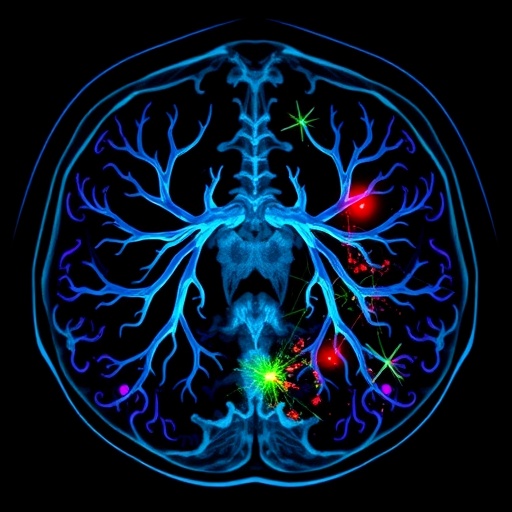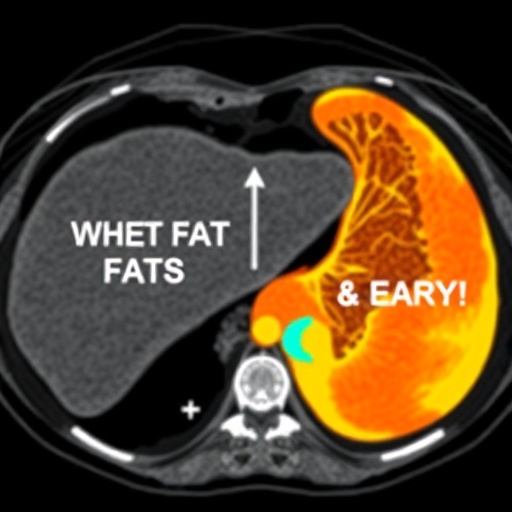PROTECT YOUR DNA WITH QUANTUM TECHNOLOGY
Orgo-Life the new way to the future Advertising by AdpathwayRecent research has shed light on the intersection of physical fitness and mental health, particularly in the context of high-intensity interval training (HIIT). A groundbreaking study conducted by Fu et al. delves into how a structured 4-week HIIT program can significantly influence mental well-being and sleep quality among female college students identified with normal weight obesity. This randomized controlled trial brings attention to an often-overlooked demographic, exploring how targeted physical interventions can have profound implications on psychological health.
The study is centered on a group of female college students, an age group frequently under considerable stress due to academic pressures, personal relationships, and the challenges of transitioning into adulthood. Normal weight obesity, characterized by a normal body mass index (BMI) yet elevated body fat percentage, presents unique health risks that are commonly dismissed as they do not fall within the conventional obesity metrics. By focusing on this group, the researchers aim to shed light on the multifaceted aspects of health that may not be adequately addressed by standard fitness regimens.
At the heart of the research is the implementation of high-intensity interval training, a form of exercise that alternates short bursts of intense activity with periods of rest or lower-intensity exercise. HIIT has gained popularity due to its efficiency and effectiveness in burning calories and improving cardiovascular health in a short amount of time. The researchers hypothesized that this training could also yield notable benefits for mental health and sleep quality, both critical components of overall well-being.
Participants in the study engaged in HIIT sessions tailored for their fitness level, ensuring a safe yet challenging environment conducive to growth and improvement. Each session, conducted under the guidance of qualified instructors, lasted approximately 30 minutes and included a variety of exercises aimed at engaging multiple muscle groups. The rigorous nature of HIIT means that participants are pushed to their limits, promoting not just physical endurance but also resilience and mental fortitude.
Over the duration of the 4-week program, mental health assessments were conducted via validated questionnaires, which measured anxiety levels, depressive symptoms, and overall mood states before and after the intervention. These assessments provided critical insights into how rigorous physical activity can catalyze changes in mental health parameters. The findings indicated a significant reduction in anxiety and depressive symptoms among participants, suggesting that the structured physical exertion of HIIT contributed to enhanced emotional stability.
Another pivotal area of focus within the study was the impact on sleep quality, an aspect often disrupted in individuals dealing with stress and anxiety. Poor sleep quality can exacerbate mental health issues, creating a vicious cycle that can be challenging to break. Participants were encouraged to maintain sleep diaries, tracking their sleep patterns and perceived quality of sleep throughout the study. After completing the HIIT program, many reported substantial improvements in their sleep quality, with longer sleep durations and fewer disturbances during the night.
The implications of these findings are significant, not only for the participants but for the broader community of health professionals, educators, and students alike. The evidence suggests that engaging in regular high-intensity interval training may be a viable strategy in addressing both mental health issues and sleep disturbances among college students. This could lead to the integration of physical fitness programs within university wellness initiatives, promoting a holistic approach to student health.
Moreover, the study emphasizes the importance of tailored exercise programs in targeting specific health concerns. The success of the HIIT intervention for this group highlights a potentially transformative approach in public health campaigns aimed at young adults. As mental health continues to rise as a pressing issue among students, finding accessible and effective solutions is paramount.
It is crucial to consider the broader context of growing obesity rates and mental health challenges across populations. Normal weight obesity itself is often a hidden epidemic, with individuals experiencing the negative health impacts of obesity without fitting traditional obesity metrics. Research like that undertaken by Fu et al. serves to expand the conversation surrounding weight, body composition, and health outcomes, encouraging a more nuanced understanding of how these factors intersect.
As further studies build upon these initial findings, there is potential for broader applications of HIIT beyond this specific demographic. From young students to older adults, the principles of high-intensity training may provide solutions to diverse populations seeking improvement in both physical and mental health outcomes.
In conclusion, the insights garnered from this study contribute to a growing body of evidence supporting the integration of physical exercise into mental health treatments. By advocating for HIIT and similar approaches, health practitioners can offer improved care strategies addressing the multifaceted challenges people face today. As fitness trends evolve, keeping mental health at the forefront will be key to developing sustainable and impactful public health initiatives.
The nexus of physical fitness and mental health is a fertile ground for future research. Continued exploration of various training modalities, their effects on different populations, and the underlying physiological and psychological mechanisms involved will further illuminate our understanding of health and wellness. Studies like this, which highlight the importance of maintaining physical activity for mental health benefits, represent significant steps forward in the quest for holistic wellness in an increasingly stressful world.
Subject of Research: The impact of high-intensity interval training on mental health and sleep quality in female college students with normal weight obesity.
Article Title: The impact of 4-week high-intensity interval training on mental health and sleep quality in female college students with normal weight obesity: a randomized controlled trial.
Article References:
Fu, J., Zhang, W., Xu, X. et al. The impact of 4-week high-intensity interval training on mental health and sleep quality in female college students with normal weight obesity: a randomized controlled trial.
J Transl Med 23, 1234 (2025). https://doi.org/10.1186/s12967-025-07276-7
Image Credits: AI Generated
DOI: https://doi.org/10.1186/s12967-025-07276-7
Keywords: high-intensity interval training, mental health, sleep quality, normal weight obesity, college students, randomized controlled trial, physical fitness, anxiety, depression, well-being.
Tags: college student health risksfitness interventions for mental well-beinghigh-intensity interval training benefitsHIIT and mental healthimpact of exercise on sleepnormal weight obesity in femalesphysical fitness and mental wellnesspsychological health and exerciserandomized controlled trial on HIITsleep quality in college womenstress management for college studentsstructured exercise programs for women


 8 hours ago
7
8 hours ago
7





















 English (US) ·
English (US) ·  French (CA) ·
French (CA) ·